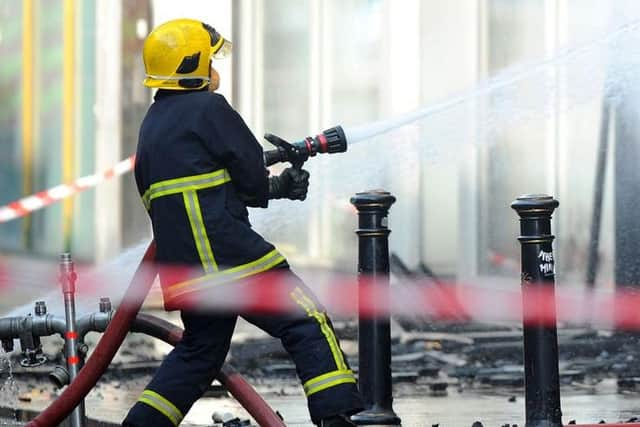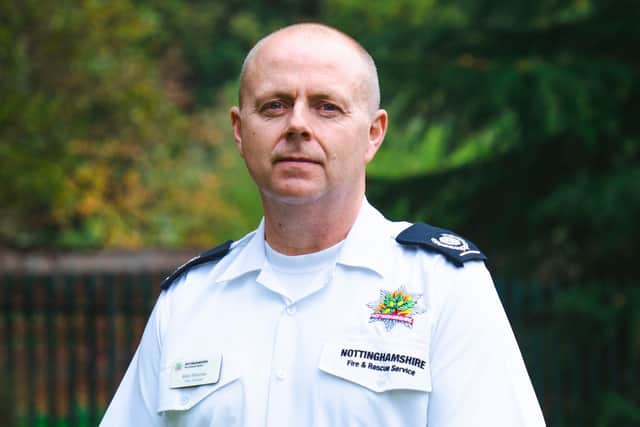Notts fire crews taking longer to respond to emergencies
and live on Freeview channel 276
The Fire Brigades Union say a national slowing in fire response times is down to ‘huge levels of cuts’ to services across England.
Home Office data shows Nottinghamshire Fire & Rescue Service responded to primary fires – the most serious kind – in an average of nine minutes and 59 seconds during the year to September 2021.
Advertisement
Hide AdAdvertisement
Hide AdIncluding 93 seconds for call handling and six minutes 31 seconds drive-time, that is slower than in the year to September 2020, when the average response time was nine minutes 37 seconds.


And the figures show the response time had slowed since 2011, when crews attended primary incidents in about seven minutes 45 seconds.
That comes despite a drop in the number of call-outs to primary fires, which fell from 1,898 in 2011 to 1,295 last year.
Area Manager Mick Sharman, NFRS head of response, said: “As set out in our strategic plan, we aim to respond to all incidents within an average of eight minutes and are consistently achieving this target.
Advertisement
Hide AdAdvertisement
Hide Ad“Response is one element of our work that ensures our communities are kept safe.


“Our prevention and protection activities are critical in reducing the number of incidents we need to send fire appliances to. Our communities are safer now than they ever have been.”
Funding cuts
The FBU says there has been a long-term slowing of response times nationally due to decades of funding cuts resulting in fewer firefighters, fire engines and stations.
Andy Dark, FBU assistant general secretary, said: “It is no surprise response times are increasing – central government cuts are entirely to blame for this reduction in services and our communities deserve better.
Advertisement
Hide AdAdvertisement
Hide Ad“The Government is playing roulette with our lives and our properties.
“We are being left for longer as our houses burn.”
Separate figures show that since 2011, the number of full-time equivalent firefighters employed by NFRS dropped from 344 to 240 last year, a 30 per cent fall, while its overall staffing levels were down 25 per cent from 551 in September 2011 to 416 in 2021.
Staffing levels have dropped significantly nationally with brigades now employing 25 per cent fewer non-managerial firefighters and 22 per cent fewer total staff members than in 2011.
Across England, the average response time for primary incidents – those which have most potential to cause harm to people or properties – is now 37 seconds slower than it was in 2010.
Advertisement
Hide AdAdvertisement
Hide AdLast year, it was six seconds slower than recorded in the year to September 2020.
Lord Stephen Greenhalgh, fire minister, said thousands of firefighters had been recruited across the country in 2021 and that fire and rescue authorities would receive around £2.3 billion to support their work.
He added: “Firefighters work tirelessly every day to protect our communities and the government has consistently given them the resources they need to keep people safe.
“Fire response times can fluctuate annually depending on many factors such as road traffic and weather but have remained relatively stable since March 2015.”
